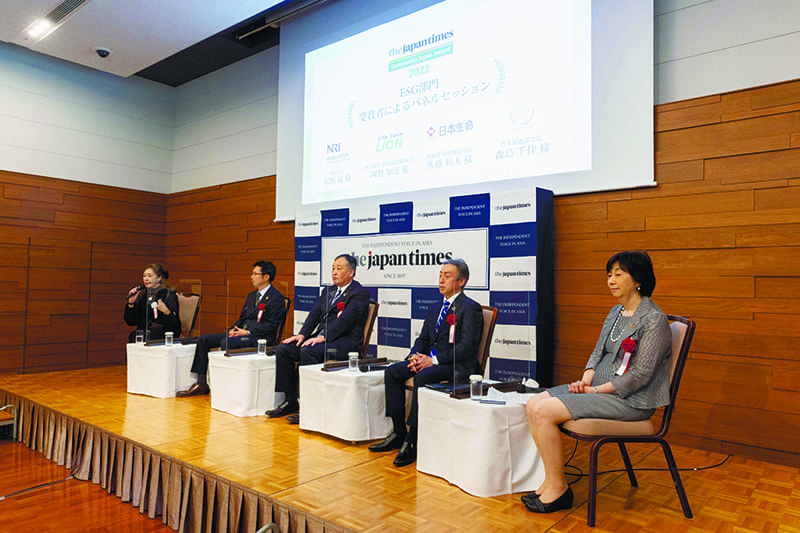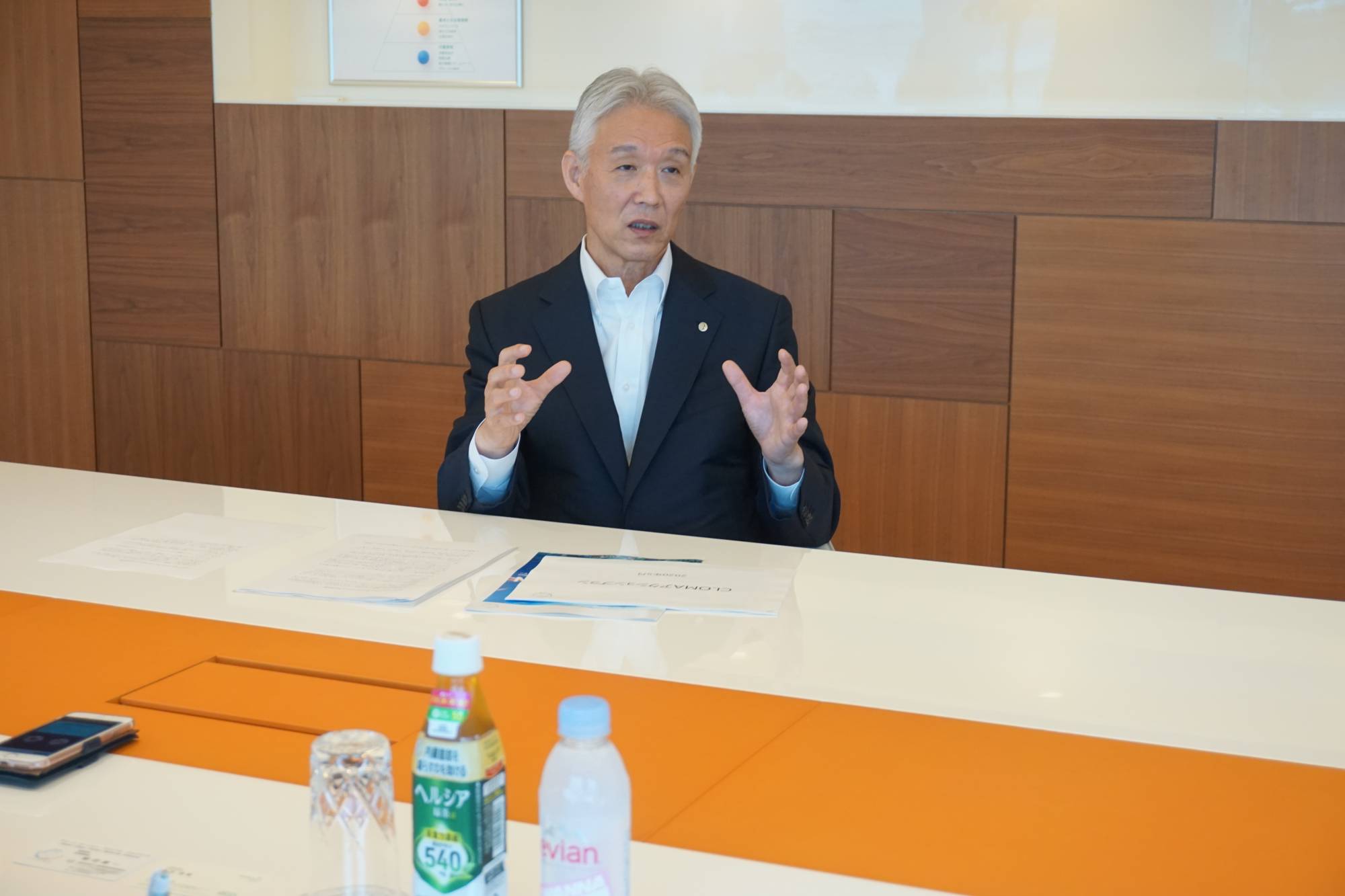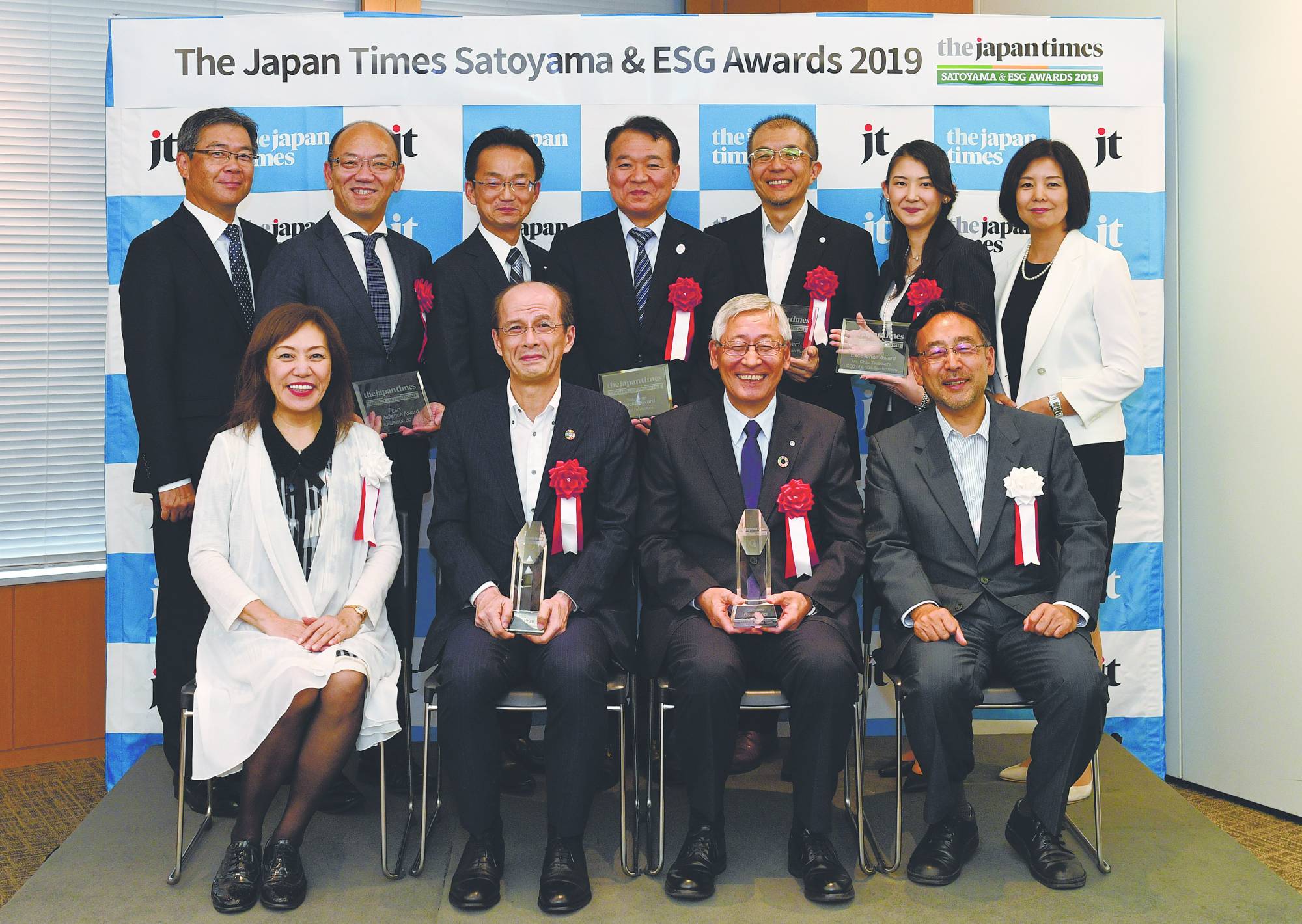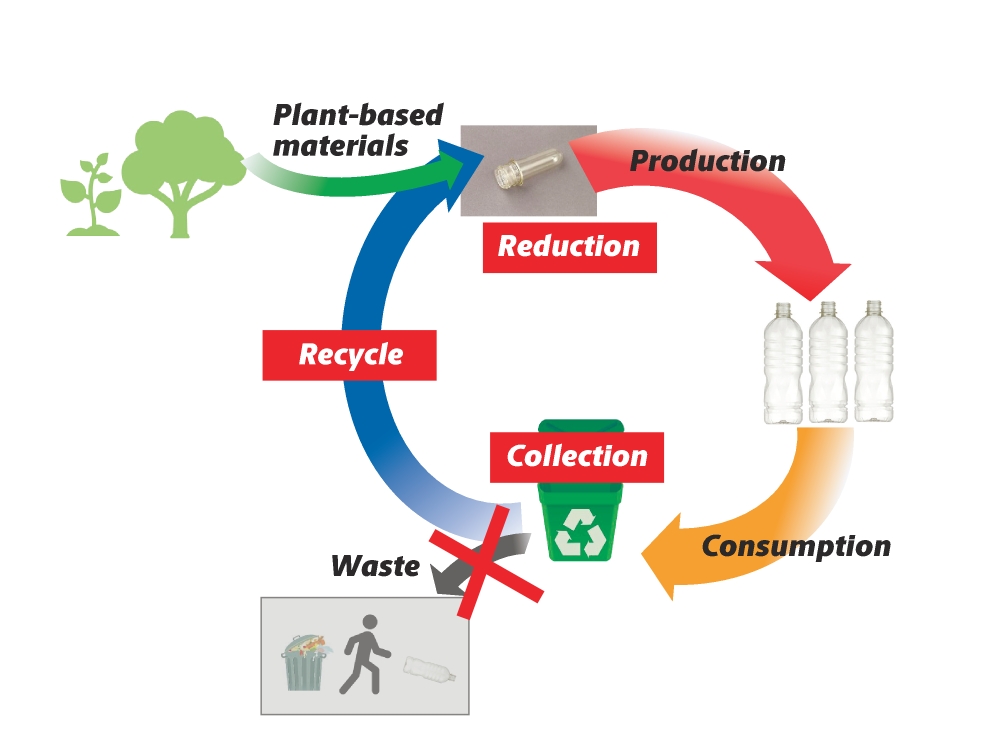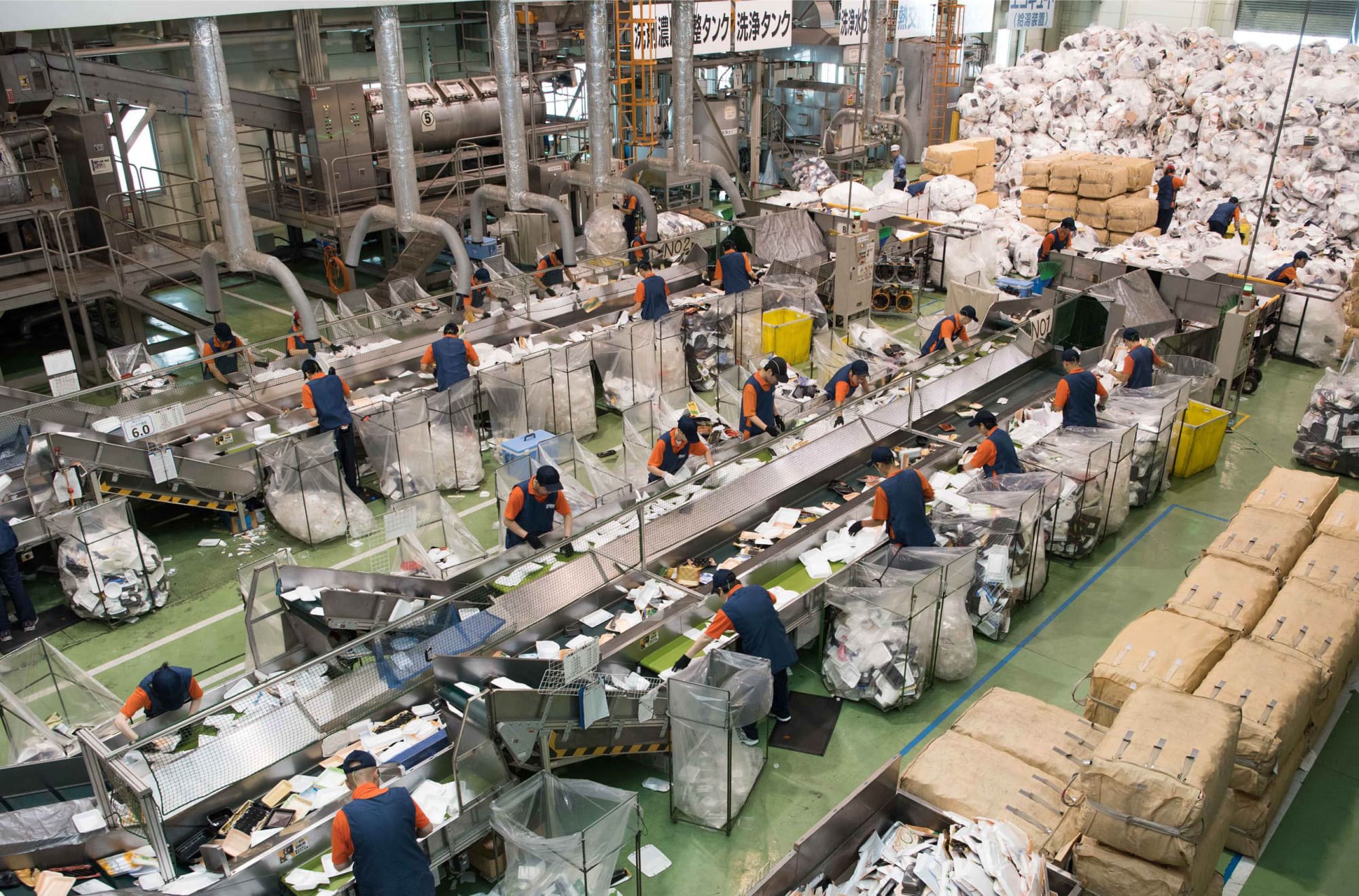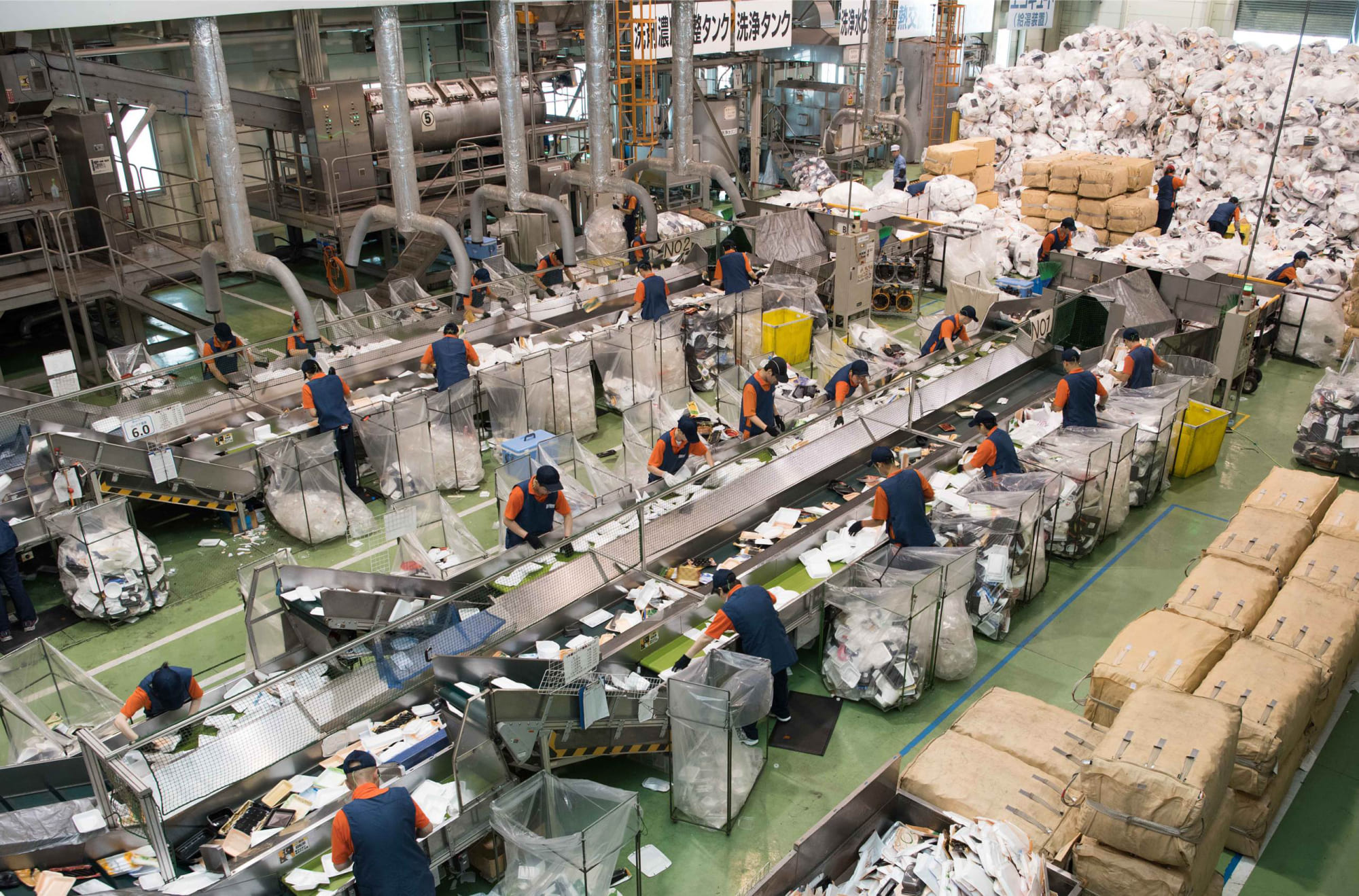January 28, 2018
Environmental friendliness through recycling
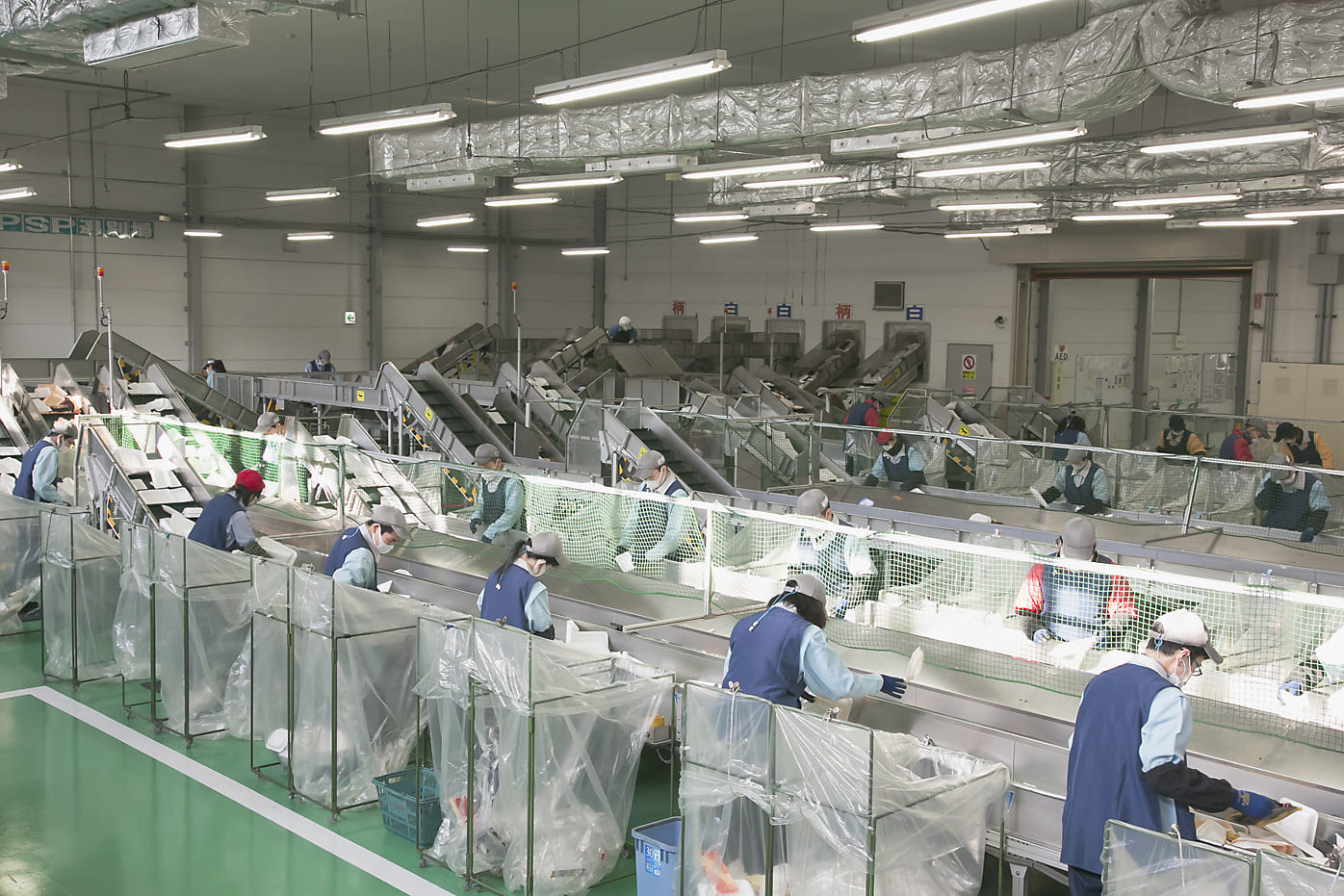
FP Corp. has grown to become a leading manufacturer of food tray containers over the 56 years since its establishment. In an era in which environmental friendliness is almost a requirement to run a business, there is a tendency to label anything disposable as environmentally unfriendly.
However, polystyrene foam trays seen holding food in supermarkets and convenience stores are actually environmentally friendly in many ways.
Polystyrene foam trays are made of 5 to 10 percent oil-based polystyrene resin and 90 to 95 percent air. This is why the trays are so light, and the technology developed by FP Corp. has made them even lighter by increasing the expansion rate of the resin. Lighter products mean less energy is needed to transport them.
In addition, FP Corp. stopped using freon gas in 1987. Its competitors in the industry followed suit when the first national law to restrict the use of freon was implemented in 1988.
FP Corp. made the trays even more environmentally friendly through pioneering methods of recycling them. In actuality, the company’s recycling business began more as a preventative measure against the global trend of consumers boycotting environmentally harmful products.
Above all, the main factor that triggered FP Corp.’s foray into recycling was the massive boycott campaign that took place in the U.S. in 1990 against McDonald’s for its use of disposable foam containers. FP Corp. reacted immediately and launched its “Tray to Tray” circulating recycling system the same year.
“Our decision was much faster than everyone else, including the government that eventually enforced the Basic Environment Law a few years later, followed by supplemental regulations issued in 2000 and 2001” said Eiji Togashi, the general manager of the Environmental Management Division.
In the circulating system developed by the company, recycled polystyrene foam trays are delivered to supermarkets where they are used as food containers, which are then washed and dried by consumers.
Shoppers then return the trays to the collection boxes placed at supermarkets, which are picked up by delivery trucks on their way back to 10 regional centers where they are sorted out and pressed before being sent to the recycling plants in three locations in Japan.
Due to the reduced use of the raw material of oil, the company’s Eco Tray successfully reduced carbon dioxide emissions by 30 percent compared to trays made of new materials.
Their clients appreciate the recycling efforts as they can assure their customers that they are conscious of their carbon footprint without having to do anything other than opting for the recycled trays.
Another core recycled product that FP Corp. has developed is Eco APET, recycled transparent food trays made from used PET bottles. The company’s Kanto Eco PET Plant in Ibaraki Prefecture is currently carefully sorting and cleaning 80 tons, or 2.7 million bottles collected from the Kanto region, every day.
The recycled material is then made into very thin sheets which are used as the middle layers sandwiched between two PET sheets made of new materials for added sanitation. This three-layer composition offers more clarity to the finished products compared to using the recycled material only.
In both processes of making Eco Tray and Eco APET, people with psychological or mental disabilities, play major roles as full-time workers in sorting the used trays and in forming, assembling, inspecting and packing PET containers. Having started the employment of such people in 1986, the number of such workers has exceeded 370, making the company’s employment rate of people with disabilities 14 percent.
Their next goal is to increase the collection rate of used trays, which is only at 30 percent today, so that they can create more job opportunities for people with disabilities.

